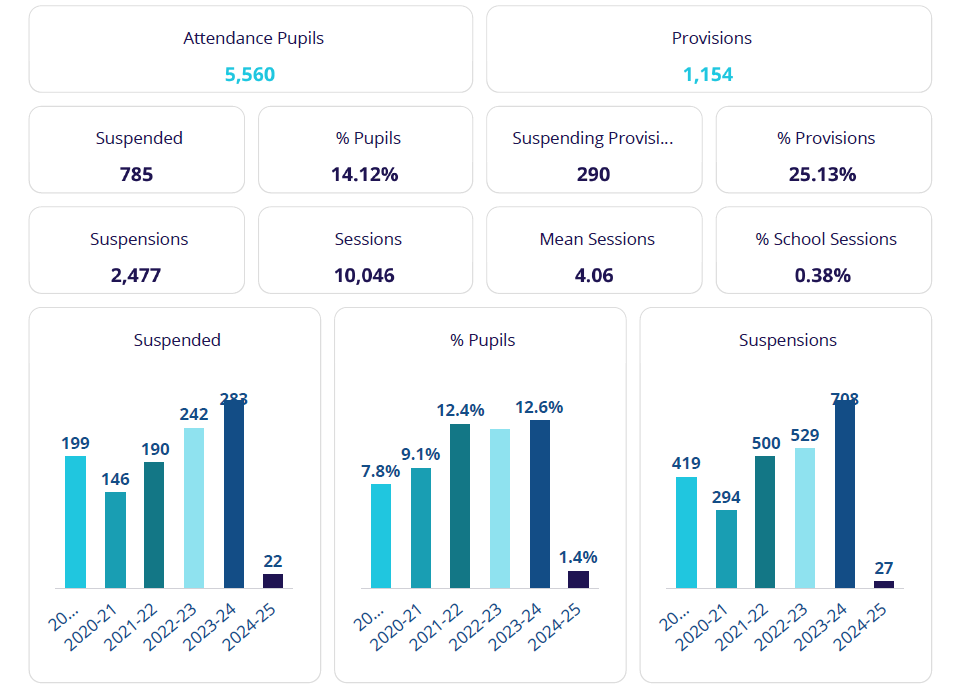Navigating the Challenges of SEND Management

As SEND Managers in Local Authorities (LAs), you’re at the forefront of ensuring that children and young people with special educational needs and disabilities receive the support they need to thrive. However, the landscape you navigate is increasingly complex, with pressures from Ofsted, budget constraints, and a lack of clarity regarding the effectiveness of provisions.
Recent reports highlight a concerning trend: a significant number of children with special educational needs are completely missing from education in England. According to a BBC article, children with SEN make up 22% of the 2,900 children who are not enrolled at a school or receiving suitable education elsewhere. This is disproportionately high compared to the 16% of children in state education who have SEN. Statistics such as these not only underscore the urgent need for effective interventions but also reflect the critical role that LAs play in addressing these gaps.
In addition, 30+ LAs are participating in the ‘Safety Valve Programme’, a government initiative aimed at helping councils manage overspending in their SEND departments. This overspend has placed immense pressure on teams, compelling them to navigate budget cuts across all departments. The consequences of these financial challenges are felt not just in SEND but throughout the entire council, further complicating your ability to meet the needs of SEND students.
Key Challenges Faced by SEND Leaders
Limited visibility of effective provisions
One of the primary issues SEND Leaders face is the distribution of funding to provisions without a comprehensive understanding of their effectiveness. Many SEND leaders report that they are unsure which services yield positive outcomes, leading to potential overspending on ineffective programs.
Lack of data on Suspensions
The absence of clear data on school suspensions for SEND children presents another challenge. While suspensions may occur, they often shouldn’t happen due to the specific needs of these students. Without visibility into these patterns, it’s difficult to hold schools accountable and advocate for necessary changes.
Ineffective resource allocation
Many SEND teams are overwhelmed due to resource shortages, and without accurate data, they struggle to identify inefficiencies. For instance, reallocating funds away from ineffective services and provisions could save councils significant amounts—potentially over £100,000 per year.
Pressure from Ofsted
As inspections loom, the pressure to demonstrate effective SEND management intensifies. Many teams are aware of their underperformance, but without robust data to guide their strategies, it becomes challenging to make meaningful improvements.
How we help
At Welfare Call, we know that effective data collection and analysis can transform how you manage your SEND provisions. Our SEN cohort collection services offer unique insights that help you navigate these challenges more effectively.
- Establishing Strong KPIs
With the data and insights we provide, you can set strong Key Performance Indicators (KPIs) in your Service Level Agreements (SLAs) with provisions. This not only holds them accountable but also ensures that you can measure the effectiveness of the services being provided.
- Monitoring Attendance and Engagement
By utilising our services to monitor the attendance of your SEN cohort, you can verify whether the funds invested in provisions are being used effectively. We’ve seen instances where councils have paid for specialist provisions at £10,000 per week, only to find that the child has never attended. Our analytics can help you identify such overspending and adjust your allocations accordingly.
- Addressing Rising Absence and Suspensions
Our data indicates that both absences and suspensions are on the rise, presenting a significant challenge for SEND managers. By leveraging our insights, you can take proactive measures to address these issues and ensure that SEND students receive the support they need.

- Building Trust Through Collaboration
We’re already working with several councils, particularly in conjunction with their Virtual School teams. By building on these existing relationships, we can ensure that our services are tailored to your specific needs and challenges. Our aim is to be a trusted partner in your SEND journey, providing the support you require to make a positive impact.
Recommendations for SEND Leaders
As you consider how to improve your SEND management strategies, here are some recommendations to keep in mind:
- Leverage Data Analytics: Don’t hesitate to invest in data analytics services that can provide the insights you need to make informed decisions. The right tools can help you identify inefficiencies and areas for improvement.
- Foster Collaborative Relationships: Work closely with your current partners and stakeholders to create a united front for SEND management. Collaboration can lead to innovative solutions and shared resources.
- Advocate for Transparency: Encourage open communication between schools and your SEND teams. By promoting transparency around suspensions and attendance, you can advocate for necessary changes that benefit students.
- Focus on Outcomes: Always keep the focus on outcomes for children and young people with SEND. By prioritising their needs, you can create a more effective SEND strategy that aligns with your council’s overarching goals.
The challenges facing SEND leaders in Local Authorities are complex. However, with the right data, insights, and collaborative partnerships, you can navigate these hurdles and drive positive change for your students.
At Welfare Call, we understand these challenges and are here to provide insights that go beyond the usual discussions, helping you enhance your SEN strategies and improve outcomes for your students. Contact us at customerservices@welfarecall.
